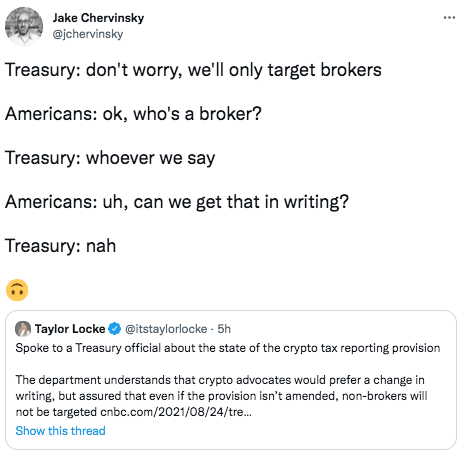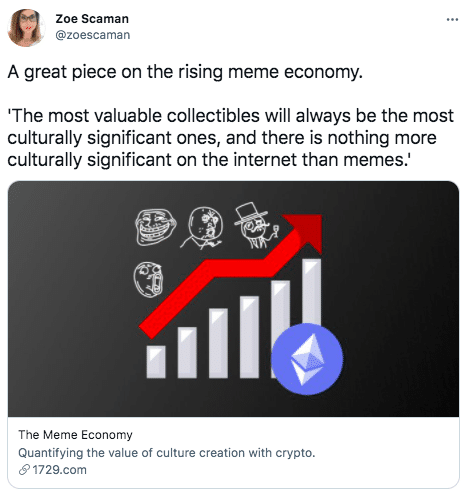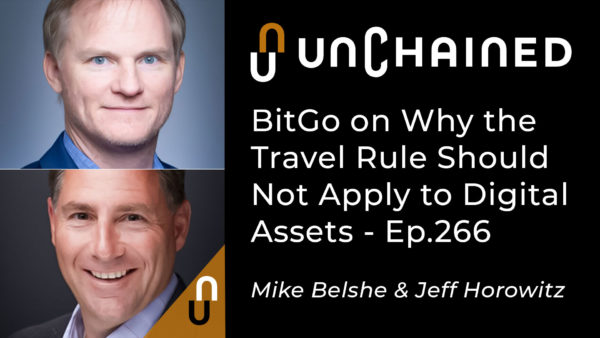August 25, 2021 / Unchained Daily / Laura Shin
Daily Bits ✍️✍️✍️
- Blockstream, a Bitcoin technology company, raised a $210M Series B at a $3.2B valuation.
- MicroStrategy purchased another $177M worth of Bitcoin.
- Citigroup is awaiting approval to begin trading CME bitcoin futures and bitcoin exchange-traded notes, according to a source within the bank.
- Bitcoin trading volume has not risen with the price, according to analysts at Arcane Research.
- Paxos is rebranding its stablecoin from PAX to USDP.
- El Salvador’s Bitcoin wallet is scheduled to go live on September 7th.
- The Poly Network hacker returned the remaining $141M worth of crypto stolen from the attack.
- Alethea AI, an NFT company, raised $16M to fund a metaverse populated by its bots.
- Ethereum 2.0 development teams received a $1.5M donation from various companies in the DeFi space.
- Kraken is in talks with regulators in several European countries.
- Avalanche plans to add Sushi to its liquidity mining incentive program.
- Budweiser paid 30 ETH (~$100K) for the rights to “beer.eth.”
What Do You Meme?
What’s Poppin’?
Yesterday morning, the House of Representatives voted 220-212 in favor of barring any amendments from consideration regarding Biden’s $1T infrastructure bill. The move strikes a blow to the crypto industry, which has been attempting to pare back the reporting requirements found within the cryptocurrency provision of the bill.
At issue is the definition of a crypto “broker.” The proposed bill is attempting to raise roughly $28B in taxes over ten years from the crypto industry by tightening reporting requirements for “brokers” and collecting taxes that might have otherwise gone unreported. If such a provision were to pass, each crypto “broker” would be responsible for filing a 1099 form on behalf of their customers and reporting any transaction over $10K to the IRS.
For centralized exchanges, this extra reporting step is not too big of a deal. In fact, some exchanges already report 1099 to the IRS. (Coinbase began submitting 1099 forms to the IRS back in 2017.)
However, many cryptocurrency advocates view the provision’s definition of “broker” as being too broad. Instead of defining a broker as a cryptocurrency exchange, the language is vague, hinting that many other crypto actors could be shoehorned into the definition. As is, the current language could classify miners, validators, and/or developers as “brokers,” according to Jake Chervinsky, general counsel at Compound. With much of crypto being decentralized, pseudonymous, and automized, it would be nearly impossible for such actors to adhere to the law.
While it seems that an amendment for the bill is off the table, it does not appear that the crypto industry is giving up the fight, as explained by Ron Hammond, director of government relations at Blockchain Association. He wrote, “We knew the possibility of amendments was slim to none. There are going to be other legislative vehicles and opportunities to fix this issue. Will take weeks, not days.”
Evan Greer, the director at Fight for the Future, echoed Ron’s sentiment: “It seems really likely that there won’t be any amendments at all. But there are a lot of other ways that Congress can fix this, as part of an amendment to a future package, or even stand-alone legislation. But if that’s going to happen, WE NEED TO SIEZE [sic] THIS MOMENT RIGHT NOW and use the momentum that we built in the Senate to get as many House lawmakers as possible on the record calling on House and Senate leadership to support a #DontKillCrypto fix as part of upcoming legislation.”
This is not the first time crypto advocates have been on the wrong end of an amendment being shut down. During the infrastructure bill’s turn in the Senate earlier this month, an amendment was almost passed at the last second that would have exempted non-custodial crypto actors from the provision. However, it failed due to a single vote from Alabama Senator Richard Shelby.
According to a CNBC report, the fears of non-custodial crypto actors coming under fire due to this bill could be unfounded. An unnamed Treasury official told CNBC yesterday that the US Treasury Department will not target non-brokers, such as miners, hardware developers, and others — even if there is no amendment.Crypto advocates, such as Coin Center’s Jerry Brito, remain unconvinced. “I’m glad to hear that Treasury officials are telling reporters on background that they don’t intend to target miners if the infrastructure bill’s crypto tax provision becomes law, but I’m afraid that is little comfort,” he wrote on Twitter. “ He continued, “it’s a little strange to assure folks that you “will not target non-brokers” because by definition only “brokers” can be subjected to reporting obligations. Of course Treasury will never target non-brokers; whoever’s targeted will have been interpreted to be broker.”
Jake Chervinksy had a similar response, albeit laced with a bit more snark:
For now, the plan is for the House to vote on the infrastructure package by September 27th. If approved, it will go to President Joe Biden.
Recommended Reads
- Chainalysis on global DeFi adoption:
- The 1729 blog on the meme economy:
- CoinDesk on Cardano smart contracts and the upcoming Alonzo fork:
On The Pod…
BitGo on Why the Travel Rule Should Not Apply to Digital AssetsBitGo CEO Mike Belshe and COO Jeff Horowitz talk about one of the hottest topics facing the crypto industry today: regulation. They discuss…
- what BitGo does
- why Jeff left his successful TradFi career to go crypto
- how crypto compliance and custody differs from the traditional finance world
- the state of crypto education amongst regulators
- why Jeff and Mike think the infrastructure bill is a win for the crypto industry
- what FinCEN is doing to regulate crypto
- why they think the infrastructure bill’s goal of raising billions in crypto taxes could only bring in millions
- what FATF guidance regarding VASPs requires of crypto companies
- why the travel rule could lead to US customer data being shared overseas
- how digital assets change the implications of the travel rule
- how regulators are attempting to deal with DeFi
- what the FATF guidance means for FATF countries, like the US
- why DeFi is not ready for strict regulations
- Jeff’s views on Brian Brooks’s departure from BinanceUS
- the Galaxy Digital acquisition of BitGo
- what security issues a trillion-dollar wallet presents
- why BitGo refused to put a “freeze” function in its WBTC contract
- why Tesla and MicroStrategy purchased BTC and why other companies have been slow to follow suit
- whether BitGo will offer NFT solutions going forward
Book Update
My book, The Cryptopians: Idealism, Greed, Lies, and the Making of the First Big Cryptocurrency Craze, is now available for pre-order now.
The book, which is all about Ethereum and the 2017 ICO mania, comes out Jan. 18. Pre-order it today!
You can purchase it here: http://bit.ly/cryptopians









